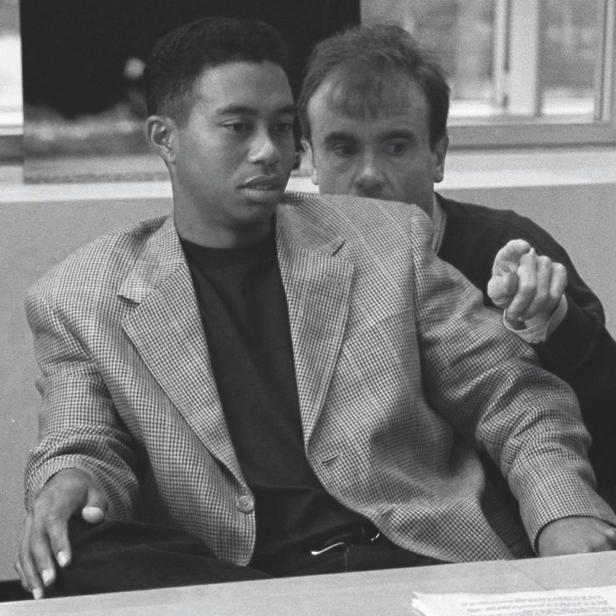In his memoir, Rainmaker, Hughes Norton discusses his long and successful career in the world of professional golf, focusing on his time at IMG where he worked closely with legendary super-agent Mark McCormack. Norton represented top players like Greg Norman and ultimately negotiated a groundbreaking deal with Tiger Woods that would make the young golfer one of the highest-earning athletes in the world. This deal, which launched Woods’ branding juggernaut, still stands out today in the world of sports mega-deals.
Norton recalls the time leading up to Woods’ decision to turn professional in 1996, noting that he had been in negotiations with companies like Nike and Titleist well before the announcement was made. He made a strategic decision to focus solely on these two companies, believing that it would pay off in the long run. Norton’s connections at IMG, particularly with Nike’s director of sports marketing, Steve Miller, helped facilitate the negotiations with the sportswear giant.
Norton’s pitch to Nike highlighted the potential for a young, charismatic talent like Woods to elevate the company’s brand in the golf world. He proposed a $50 million deal over five years, a figure that was unheard of in golf at the time. Despite initial resistance from Nike, a compromise was eventually reached, guaranteeing Woods $8 million a year over five years.
In addition to the base contract, Norton negotiated significant bonus clauses for Woods, including large payouts for major championship wins and achieving the world number one ranking. These clauses would add $8 million to Woods’ earnings over the 5-year contract. Norton also secured guaranteed compensation for all five years of the deal, regardless of Woods’ performance on the course.
When it came to securing an equipment deal for Woods, Norton believed that Titleist was the perfect fit. He had been playing Titleist balls for years and was open to using their equipment for the entirety of his professional career. Negotiations with Titleist resulted in a $20 million deal over five years, with escalating bonuses similar to those in the Nike contract.
Before finalizing both the Nike and Titleist deals, Norton arranged a meeting in San Francisco where Woods and his father, Earl, would meet with representatives from both companies. The agreements were signed, totaling $60 million in guaranteed income for Woods. These deals marked the official beginning of Woods’ professional career, launching him into the world of professional golf with substantial financial backing.
Norton’s representation agreement with IMG differed from traditional contracts, with a sliding scale commission structure based on Woods’ earnings. The agreement also included incentives for extending the contract based on income generated, a unique approach that would benefit both Woods and IMG in the long run.
Ultimately, Norton’s representation of Woods would come to an end in 1998, but his contributions to the young golfer’s career were instrumental in shaping Woods’ success on and off the course. Woods would go on to generate billions in endorsements and prize money, solidifying his status as one of the most successful athletes in sports history. Norton’s role in negotiating Woods’ early deals set the foundation for the golfer’s stellar career and financial success.


